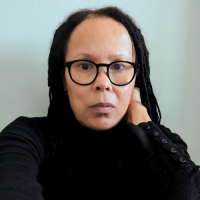Our vision
The Centre for Inequalities focuses on exploring, understanding and reducing inequalities in education, health, communities and workplaces, and other domains across our society. Our members provide interdisciplinary research and practical interventions, which promote equality, integration and social justice across the lifecourse.
We aim to:
- Provide high quality research for improving understanding and informing action on inequality.
- Train individuals and organisations to value and implement Equality, Diversity, Inclusion and Equity (EDIE) principles across health, education, community and workplaces.
- Work with third and public sectors to promote a more global perspective on EDIE issues and create pathways of communication between policy-makers, practitioners, educators and researchers.
- Support the development of researchers, professional practitioners and wider organisations working on inequality issues at every level of career or organisational maturity.
- Collaborate and disseminate research and knowledge exchange activities in ways that enable accessibility, rigor and transparency.
Our impact on the world
The world faces major challenges, including religious, ethnic and class conflict, gender and ethnic inequality, ageing, immigration and large-scale refugee crises. By exploring these issues from multiple perspectives, researching individual experiences and motivations, as well as underlying social, political and economic structures, we seek to develop new, impactful and sustainable interventions and bodies of evidence that can make a positive societal difference.
Our research and practice contribute to several UN Sustainable Development Goals (SDGs). Examples include:
- Our work on intimate partner violence and the issue of sexual consent among different social groups, which supports Gender Equality (SDG5).
- Our explorations of prejudice and inequality faced by disabled people, refugees, older people and other marginalised groups in schools across Europe, and the subsequent development and implementation of theory-driven interventions, which supports Reduced Inequality (SDG10).
- Our research on the lived experience of people from warzones and post-conflict societies, such as Cyprus and Kosovo, informing initiatives to strengthen institutions and promote peace, which supports Peace, Justice and Strong Institutions (SDG16).
Who we are
An interdisciplinary approach
The Centre for Inequalities draws on the expertise of researchers from multiple disciplines and professions, including psychologists, educationalists, social workers, and health practitioners (such as nurses, health visitors, pharmacists, public health experts), business experts, sociologists and historians. Our interdisciplinary, methodologically robust, and participatory approach is vital for tackling an issue as complex and multidimensional as inequality. Regardless of background all members share a commitment to addressing inequality around the world.
Partners
We work with local, national and international organisations to address inequalities. These organisations include primary and secondary schools in the UK and abroad, NHS Trusts, the Metropolitan Police Service, small and larger charities, and community groups. We also work with universities across the UK and internationally.
Funding
The work of the Centre for Inequalities is supported by funders including UK Research and Innovation (UKRI), the Economic and Social Research Council (ESRC), the British Academy and EU Horizon, as well as other charities and consultancy work.
Our research
A multi-methods approach to research
We apply a wide variety of primary and secondary research, with quantitative and statistical skills a particular strength of the Centre. For instance, we often combine meta-analyses of large datasets, cross-sectional and experimental approaches, and deploy innovative methods including virtual reality (VR) simulations. Many members have strong track records developing creative and participatory research methods. Centre members support a number of postgraduate research students and welcome enquiries from prospective applicants.
Among the topics studied at the Centre are inter-ethnic and inter-faith relations; nationalism and sociopolitical ideologies; prejudice and prejudice-reduction; refugee, Roma, homeless and other displaced and disadvantaged communities; LGBTQ+ and gender rights; ageing; victimised and stigmatised groups; mental health and disability. This diverse range of work broadly falls into six domains:
- Education
- Health
- Workplace
- Prejudice and prejudice-reduction
- Political contexts of inequality
- EDIE practice
Education
Our recent work on education includes projects on inequalities faced by undergraduate, postgraduate students and academic staff of different ethnic backgrounds in British Higher Education Institutions.
Health
We have several projects on understanding and tackling health inequalities. For example, one of the larger research projects in the health domain examines inequalities in pain treatment depending on the patient’s gender or ethnic background.
Workplace
Research in this domain includes exploration of inequalities faced by people with a disability in workplaces: how they are integrated and perceived, and what support there is for disability rights among co-workers.
Prejudice and prejudice-reduction
We run a large number of research projects on understanding prejudice in all its forms as well as designing, implementing and evaluating theory-informed prejudice-reduction interventions.
Political contexts of inequality
Our research focuses on understanding the impact of the current and historic political climate and rhetoric on inequality globally. For example, our research examines populism and anti-immigration sentiment, and has focused on the impact of colonialism on individual and systemic processes.
EDIE practice
This cross-cutting domain provides state-of-the-art training, expertise and advice for people from external organisations who want to understand EDIE practice.
Publications/Output
Centre members frequently publish findings from their work and present regularly at conferences, workshops and seminars. Please contact Centre members directly or click here to view all publications.
Teaching and training
The Centre for Inequalities hosts the Greenwich Open Research and Scholarship Hub (GOSH), which is an inclusive space and discipline-independent community to learn, collaborate on, embed and champion open research practices within teaching and research.
The Centre also hosts the Social Psychology Laboratory, which provides a platform to social, political, and cultural psychologists, to exchange ideas, collaborate and design research. Expertise from within these groups, and from the wider Centre community, contribute to a range of consultancy initiatives and projects with and for external organisations.
News and events
The Centre for Inequalities organises a lively programme of events relevant to expertise of our members, such as book launches, film screenings, research seminars and conferences. Our members are also involved in community-focused activities, and knowledge exchange events with public and third sector organisations.
Contact us
For information about the Centre and proposed collaborations contact
For general inquiries regarding the Institute for Lifecourse Development contact ILD@gre.ac.uk






























